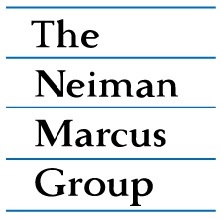A Mandatory Arbitration Agreement With a Choice of Law Clause and a Clause Delegating Interpreting Authority to the Arbitrator Is Procedurally and Substantively Unconscionable.
Employer Neiman Marcus Group (NMG) compelled arbitration of Plaintiff’s wage claims, in part,[i] after Plaintiff moved for certification in a wage and hour class action.[ii] The trial court held that other than Plaintiff’s PAGA claim, the arbitrator would decide all questions about the case.
 Plaintiff’s petition for a writ of mandate was denied on the grounds that had “an adequate remedy at law by appeal after a judgment confirming any arbitration award.” Plaintiff made a motion for reconsideration in light of new authority,[iii] and the trial court reconsidered its order compelling arbitration.
Plaintiff’s petition for a writ of mandate was denied on the grounds that had “an adequate remedy at law by appeal after a judgment confirming any arbitration award.” Plaintiff made a motion for reconsideration in light of new authority,[iii] and the trial court reconsidered its order compelling arbitration.
During the time the trial court was reconsidering its order, Peleg v. Neiman Marcus Group, Inc. (2012) 204 Cal.App.4th 1425 was decided. The Peleg court found that the identical arbitration agreement (Agreement) at issue in Pinela was illusory under Texas law (which the Peleg court gave force to in a choice of law provision) and as such it was unenforceable.
Seven months later, the Pinela trial court vacated its order compelling arbitration and denied NMG’s motion in its entirety, citing to Peleg.
NMG appealed, arguing that once the trial court entered an order compelling arbitration it lost jurisdiction to reconsider whether the case should be compelled to arbitration.
The court of appeal rejected NMG’s argument, holding that a trial court may reconsider interim rulings such as compelling or denying arbitration, with or without a change in the law.
The appellate court also rejected NMG’s argument that only the arbitrator and not the trial court should determine whether the Agreement was enforceable, as so delegated in the Agreement, holding that NMG had not met its burden of showing that the delegation clause met the two prerequisites to be effective:
(1) the language of the clause must be clear and unmistakable, and
(2) the delegation must not be revocable under state law contract defenses to enforcement. One such contract defense is the doctrine of unconscionability, as codified in Civil Code section 1670.5.
The court of appeal agreed with Peleg’s ruling that the language of the Agreement, under California law, did not clearly and unmistakably delegate questions about enforceability exclusively to the arbitrator. The Pinela court also held that delegation clause was revocable because it was unconscionable under California law.
The court found the clause procedurally unconscionable because of the adhesive nature of the clause (the Agreement was “mandatory” and presented on a take-it-or-leave-it basis) and because the choice of law provision (Texas) made it confusing for Plaintiff to make an informed decision as to the consequences of agreeing to delegate interpretation of the Agreement to the arbitrator.
The court of appeal also found the clause substantively unconscionable because the choice of law provision imposed an unfair burden by restricting the delegation provision such that the arbitrator did not have the authority to apply California unconscionability standards to the analysis of the Agreement as a whole.
The appellate court further found that the entire Agreement as a whole was substantively unconscionable because at least three clauses were substantively unconscionable, including the fact that the choice of law provision prohibited Plaintiff from asserting his statutory wage claims, which the court of appeal described as “plainly obnoxious to public policy in California.”
The appellate court also found that, in interpreting the choice of law provision, California had a greater interest in enforcing its law for California-based workers (notwithstanding the value and efficiency to NMG of having a uniform, predictable wage and hour policy in every state in which it does business) and therefore the choice of Texas law was unenforceable.
If you would like to speak to an employment lawyer in Los Angeles, please contact Feldman Browne, APC now to discuss your potential case. If you’ve never met with an attorney before, don’t be intimidated, here’s what you can expect when meeting with a lawyer for the first time. First consultations are free.
Call now: (310) 984-1415
[i] The trial court denied the motion as to Plaintiff’s civil penalties under the Labor Code Private Attorneys General Act of 2004 (PAGA).
[ii] There were two named Plaintiffs, but only the Respondent to this case signed the Mandatory Arbitration Agreement.
[iii] Ajamian v. CantorCO2e L.P. (2012) 203 Cal.App.4th 771.


